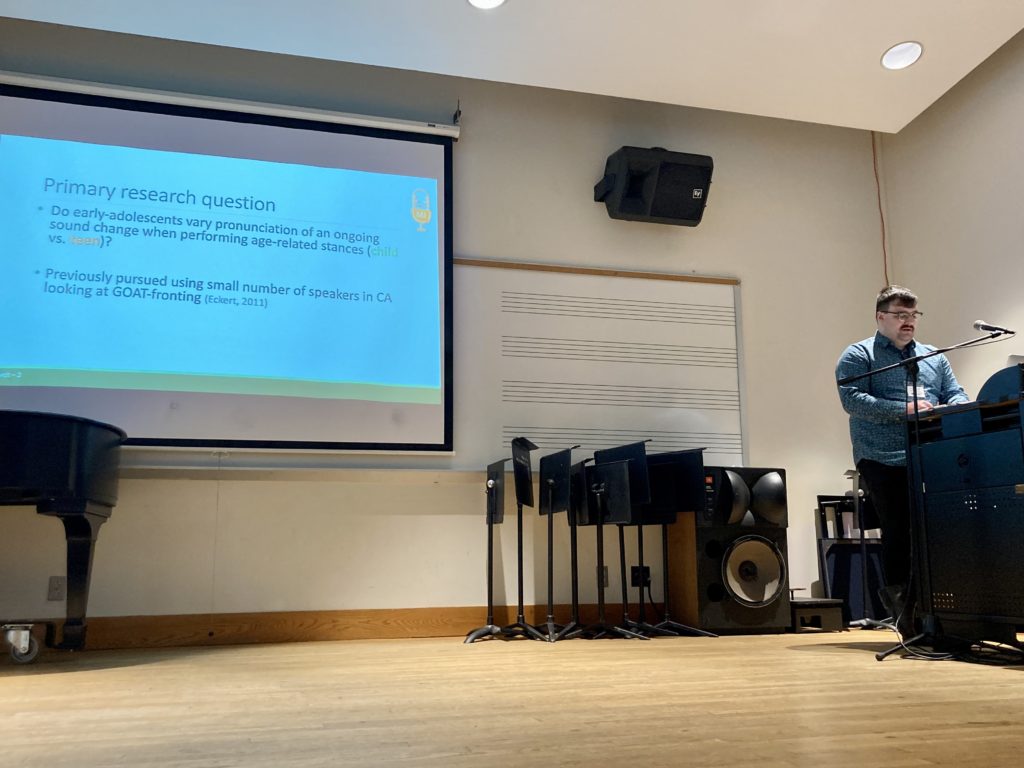Socio Lab goes to New York City for NWAV 51




The MSU Sociolinguistics Lab was well represented at the NWAV 51 conference at Queens College, New York, October 13-15, 2023. We had presentations on some of our first analyses of linguistic data from the MI Diaries project: Dr. Betsy Sneller presented as first author on a talk about Michigan English vowel change in apparent time, and Linguistics PhD students Adam Barnhardt and Yongqing Ye presented their doctoral qualifying paper research on adolescent stance-taking and vowel nasalization respectively. In addition, we had a poster that described our experience of building the MI Diaries ‘brand’ over the last three years. We were pleased to include new first year Second Language Studies student Shannon Harasta, who presented her MA thesis research (Southern Illinois University, Carbondale) on queer individuals’ sense of (dis)comfort with various audiences. And it would not be NWAV without a gathering of MSU Socio Lab alumni and associates, such as Dr. Monica Nesbitt (U Indiana Bloomington), Jack Rechsteiner (U Pittsburgh), Chun-Yi Peng (Borough of Manhattan Community College) and Jayce Garner (Pomona College and MI Diaries NSF-REU 2022).

